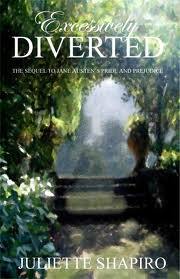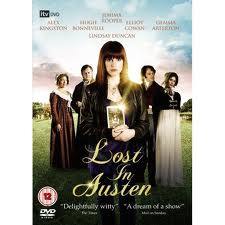Jane and His Lordship's Legacy by Stephanie Barron

As the eighth book in the Jane Austen Mysteries series opens, it is July, 1809, and Jane and her mother have arrived in Chawton to take possession of the cottage in which Edward Austen’s late bailiff lived. Village sentiment is against the squire’s womenfolk displacing the bailiff’s widow, and when a corpse is discovered in the cellar within a few hours of their arrival, suspicion falls on several neighbours who have a score to settle with the Austens—or with one another. (The rest of this review contains a major spoiler for the previous book in this series, Jane and the Ghosts of Netley. We find it impossible to write a proper review without reference to it.)
Jane finds herself burdened not only with a mystery to solve, but with the legacy left by Lord Harold Trowbridge, killed in the closing pages of the previous book: he has bequeathed his personal letters and journals to Jane so that she may write his memoirs. Lord Harold being who he was, and living as he did, these papers are rather incendiary: his lordship’s sobriquet of the "Gentleman Rogue" was indeed well earned. He moved among the highest levels of Britain’s aristocratic and political circles and among the most dangerous company in his capacity as a spy for the Crown.
The Lord Harold fangirls who, like this reviewer, mourned his untimely death (and were exceedingly displeased with the authoress for perpetrating it) will find comfort in this volume, as Lord Harold is very much present via excerpts from his papers, which are sometimes shockingly personal. Though the presence of these papers are part of the mystery plot, they form their own subplot of sorts, one that we found at times more absorbing than the actual mystery. Ms. Barron’s knowledge of the political and military history of the time, as well as her background in intelligence work, inform these excerpts and give them a ring of veracity that will fascinate students of the time period.
We are on record as being dissatisfied with the previous volume of the series, finding the glimpses into Jane Austen’s mind rather darker than we would have imagined; also, we have long deplored the un-Austenlike excesses of language contained in all the books in the series. These problems have not been completely resolved, but we found them less distracting in the latest volume, which must be considered an improvement; however, we do wish that Jane would occasionally "relax into laughing at herself or other people."
We expect that not even a grieving Jane Austen would be so relentlessly, depressingly introspective. However, Jane at last being settled in Chawton gives great promise for fans of the traditional British cozy mystery; "3 or 4 families in a country village" was not only Jane Austen’s preferred milieu, but also one that inspired Agatha Christie and her followers, although one cannot imagine Jane Marple or Hercule Poirot writing Pride and Prejudice. Another delicious consideration is that we are approaching the years in which Jane published her novels, which will add a new and, to Jane Austen fans, very interesting twist to this continuing series. We look forward to the next volume with great pleasure.
Margaret C. Sullivan is the webmistress of Tilneys and Trap-doors and AustenBlog.com and wishes Jane Austen really did write the memoirs of the Gentleman Rogue.



Leave a comment
This site is protected by hCaptcha and the hCaptcha Privacy Policy and Terms of Service apply.